Pandemic Architecture, an International Ideas Competition curated by the Design Ambassador for ARCHISEARCH.gr, invited the creative community to open up a dialogue and create a think tank, looking for ideas from the architectural and design community about the future of the living, the workspace, the public space and the tourism industry after the outbreak of Covid-19.
Public Prompts, was shortlisted in top 50 out of 440 projects.
-text by the authors
The project attempts to rethink public space during the pandemic in order to create a healthy, safe, resilient, flexible, and vibrant city. The six design strategies span across several topics indicating a set of actions that adapt public space at the time of emergency response and upcoming recovery.
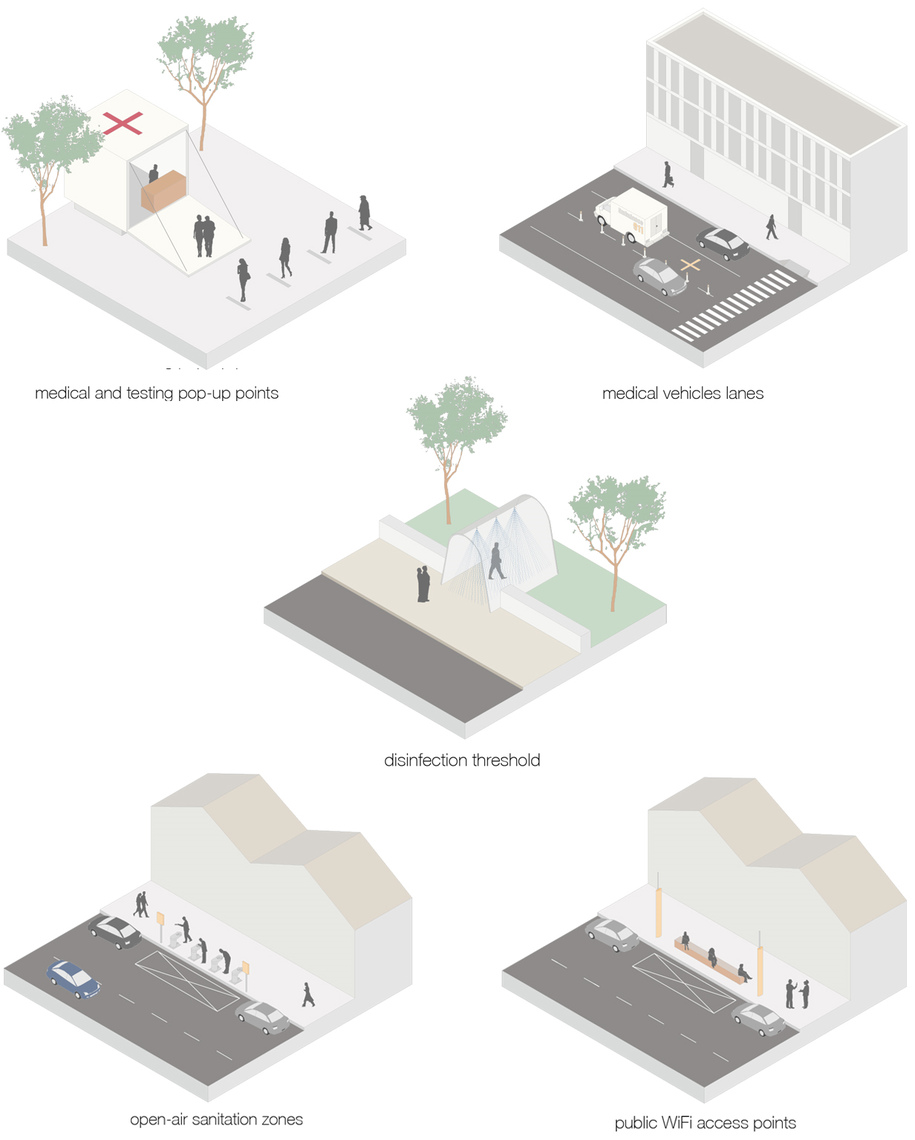
During a health crisis controlling the spreading of the virus is crucial thus public space should adjust to all the difficult situations and be capable to locate medical and testing pop-up points, disinfection thresholds, measuring temperature devices, or open-air sanitation zones accessible to everyone.
Moreover, medical vehicles ought to have dedicated lanes while WiFi should be publicly available to home-office workers or remote students.
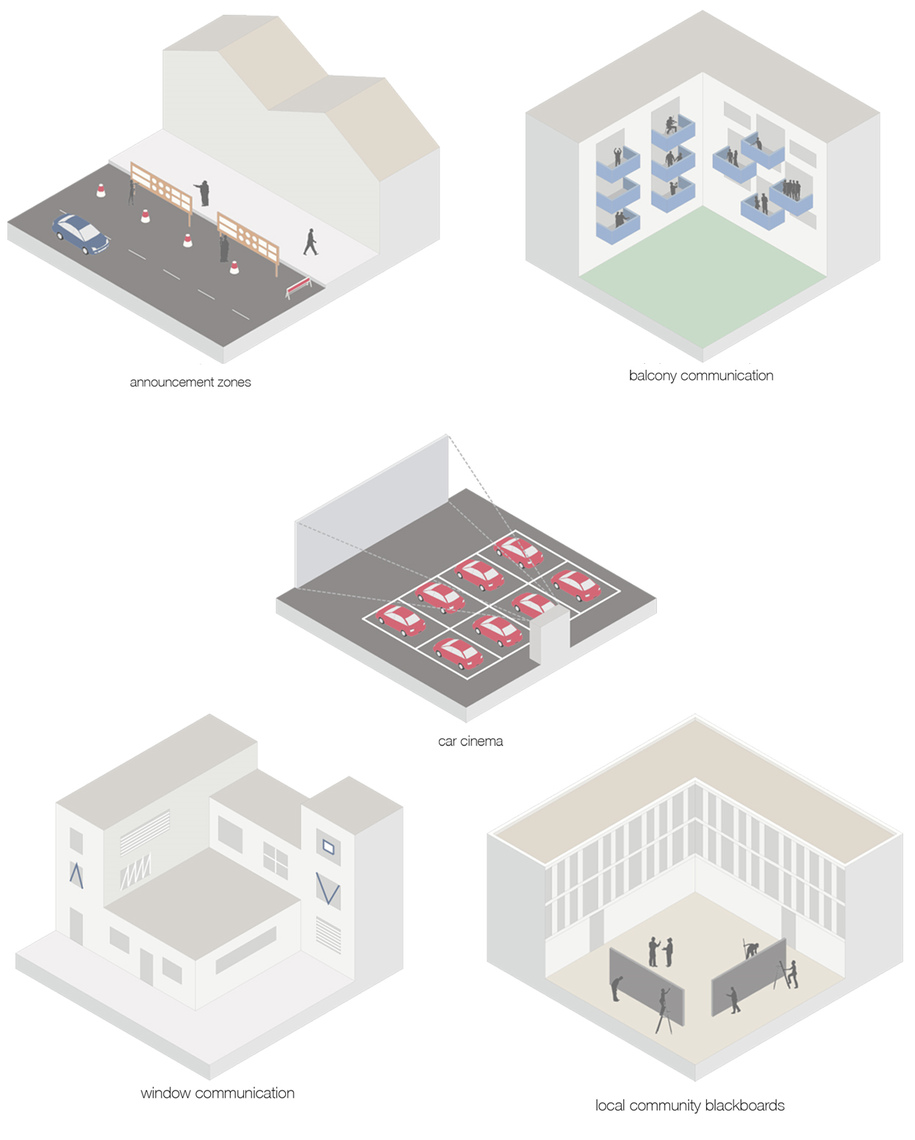
Such time is an opportunity for communities to get stronger, especially by cooperating and supporting each other in a form of announcement zones, local blackboards that may reach those in need, or the ones who offer help. In addition, balcony or window communication makes the community stay in touch on a social distance.
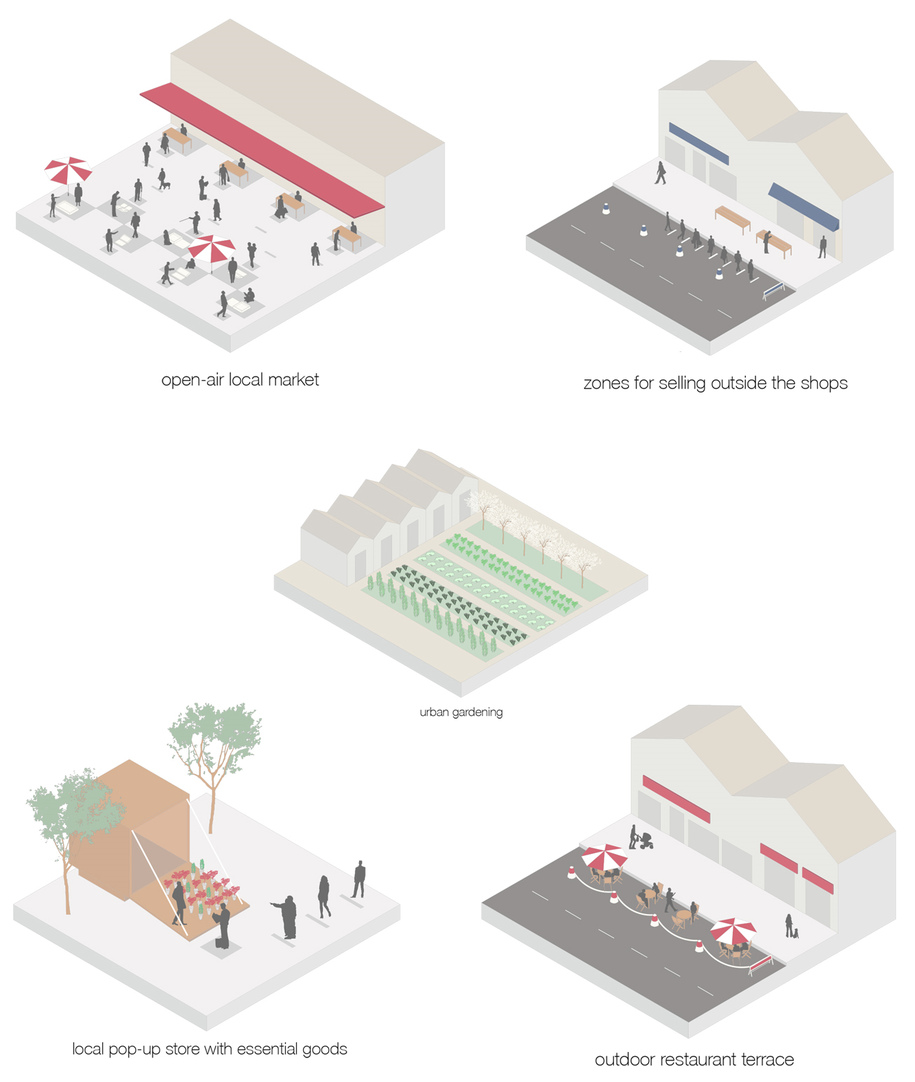
The economic crisis affects mainly the most vulnerable groups like local entrepreneurs that due to lockdown hardly make ends meet. Organizing open-air local markets, outdoor restaurant terraces, or zones for selling outside the shops can enhance the local economy. The time of emergency should also support local pedestrian circulation, therefore neighborhoods could organize several locations with pop-up stores that sell essential goods without the necessity to go to a crowded supermarket. At the same time, the inhabitants can be more resilient thanks to growing their own food.
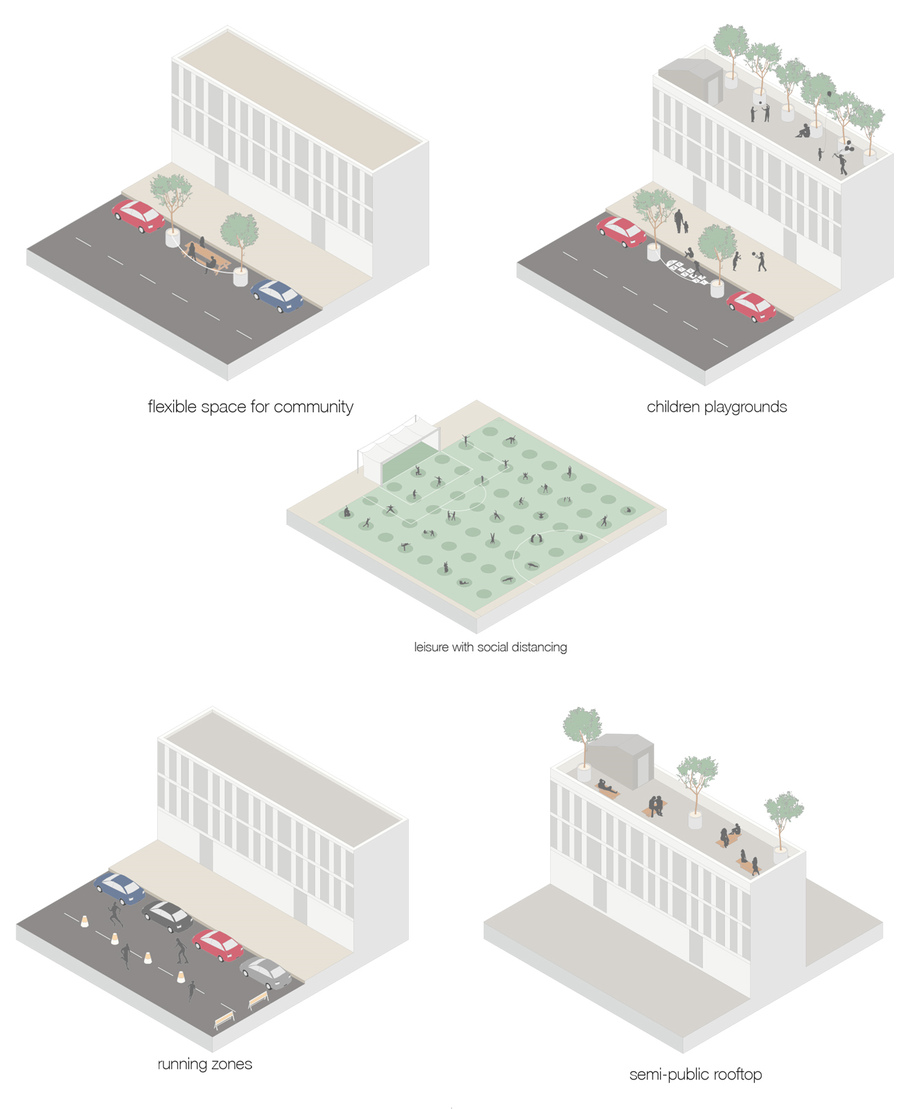
Going outside has a positive impact on our mental health as staying at home during pandemic makes us feel lonely and isolated, hence public space should provide adaptable areas that are temporarily or permanently furnished with flexible and movable urban furniture that meet social distancing requirements. It is an urgent need to dedicate more street space to people, chiefly near important services or narrow sidewalks.
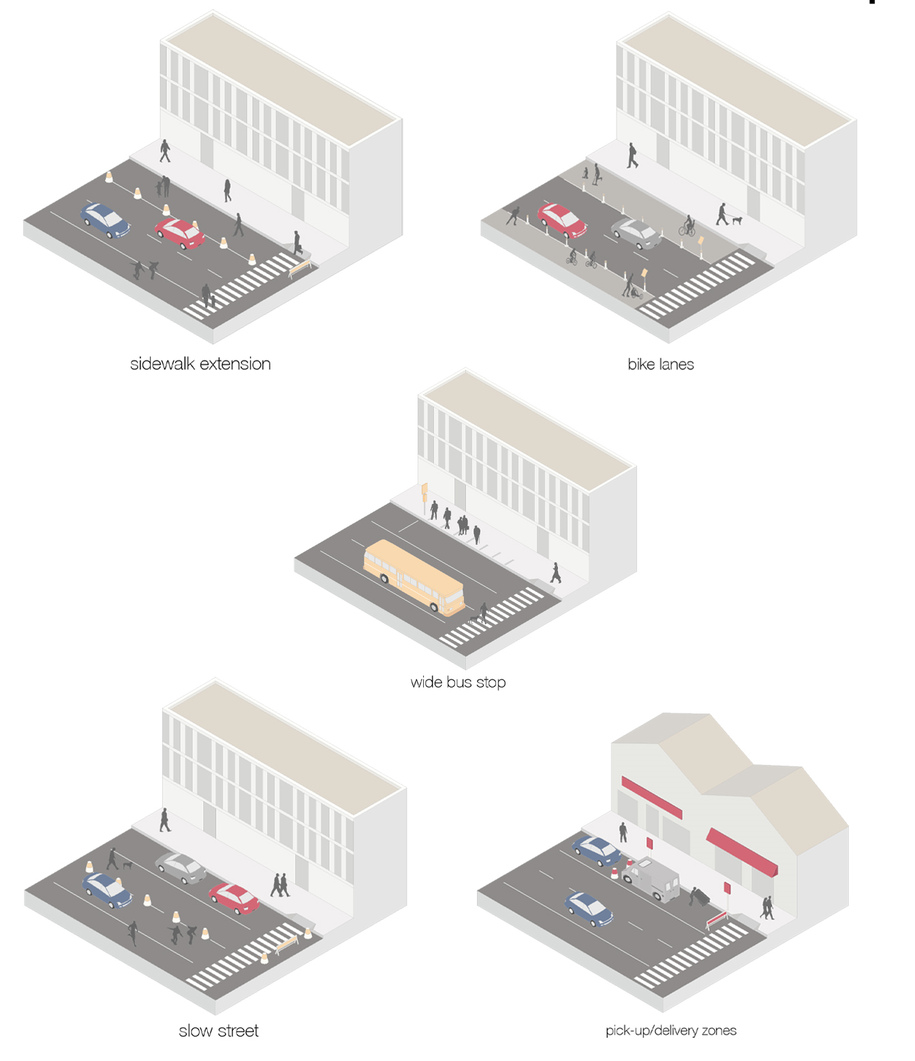
Simultaneously, such transformations can be related to soft mobility and transportation as well. This will lead to more sustainable infrastructure and decreasing air pollution, giving people more choice in daily commuting.
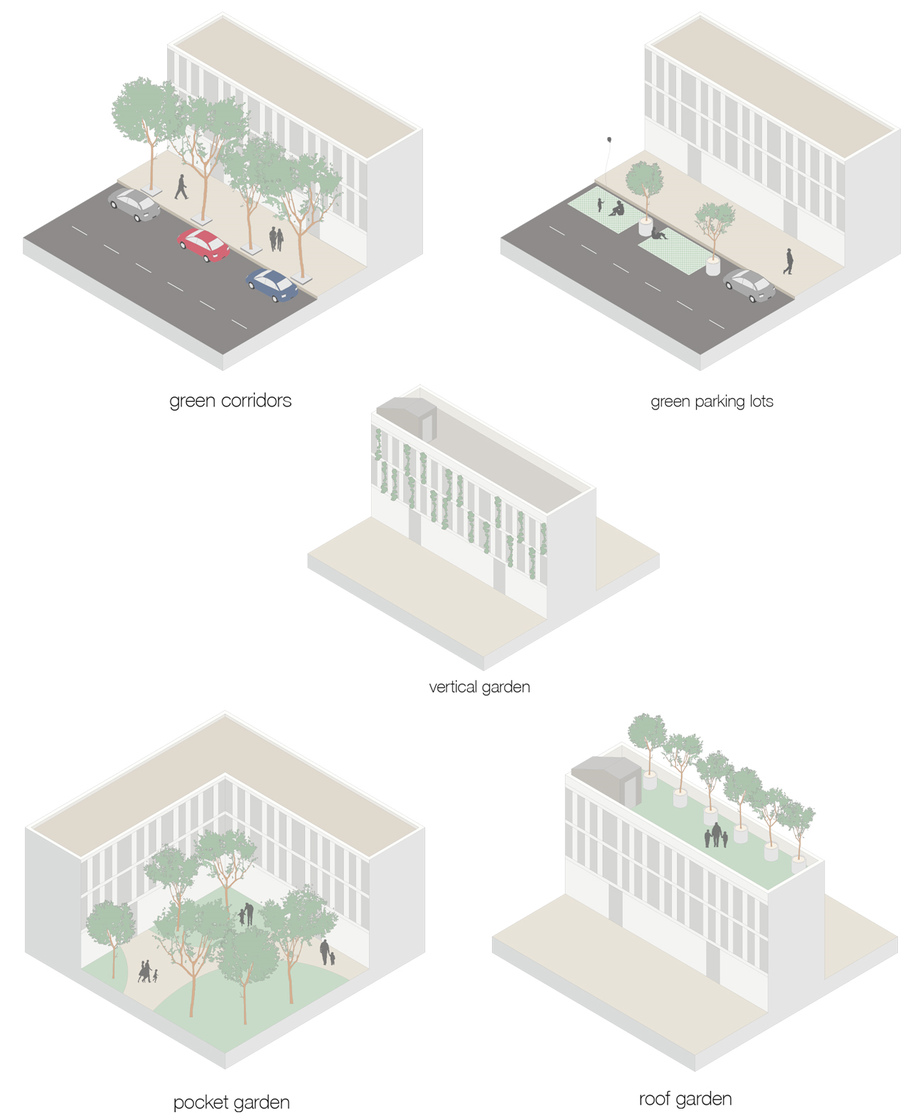
Last but not least, the pandemic lockdown provides time for reflection on how to make our cities more sustainable and coexisting with nature that is an inseparable aspect of human habitat.
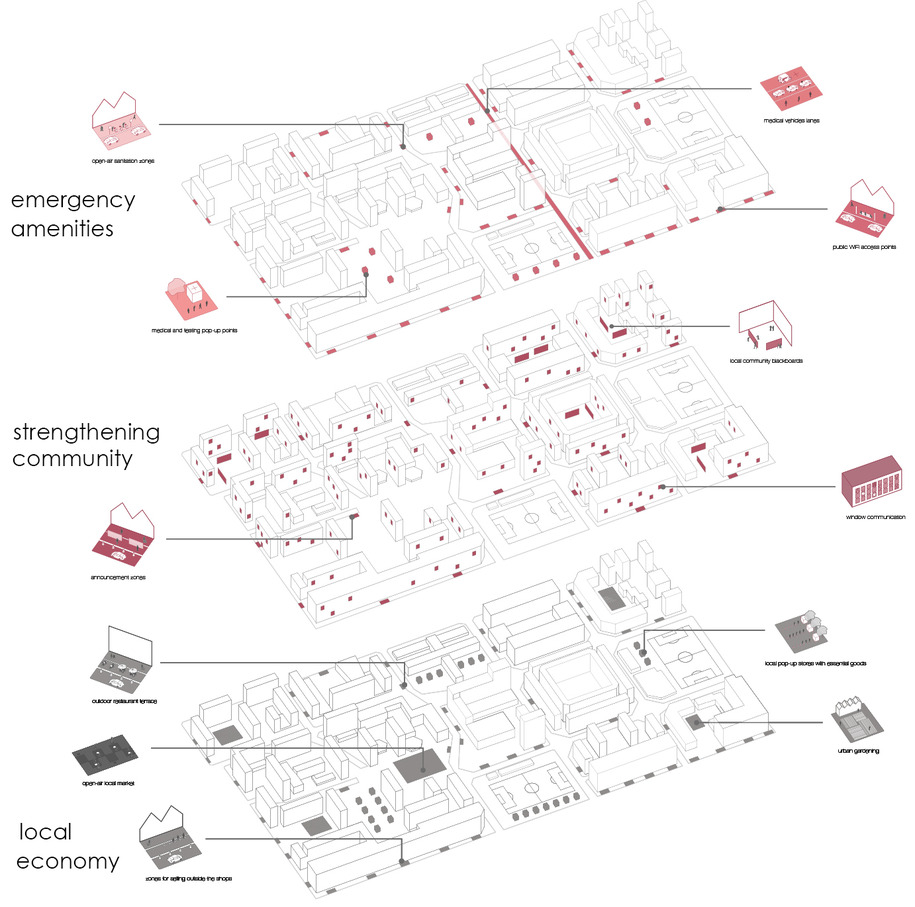
While most human activities are on hold, the environment gets cleaner making us realize how greenery and biologically active places are important in our cities.
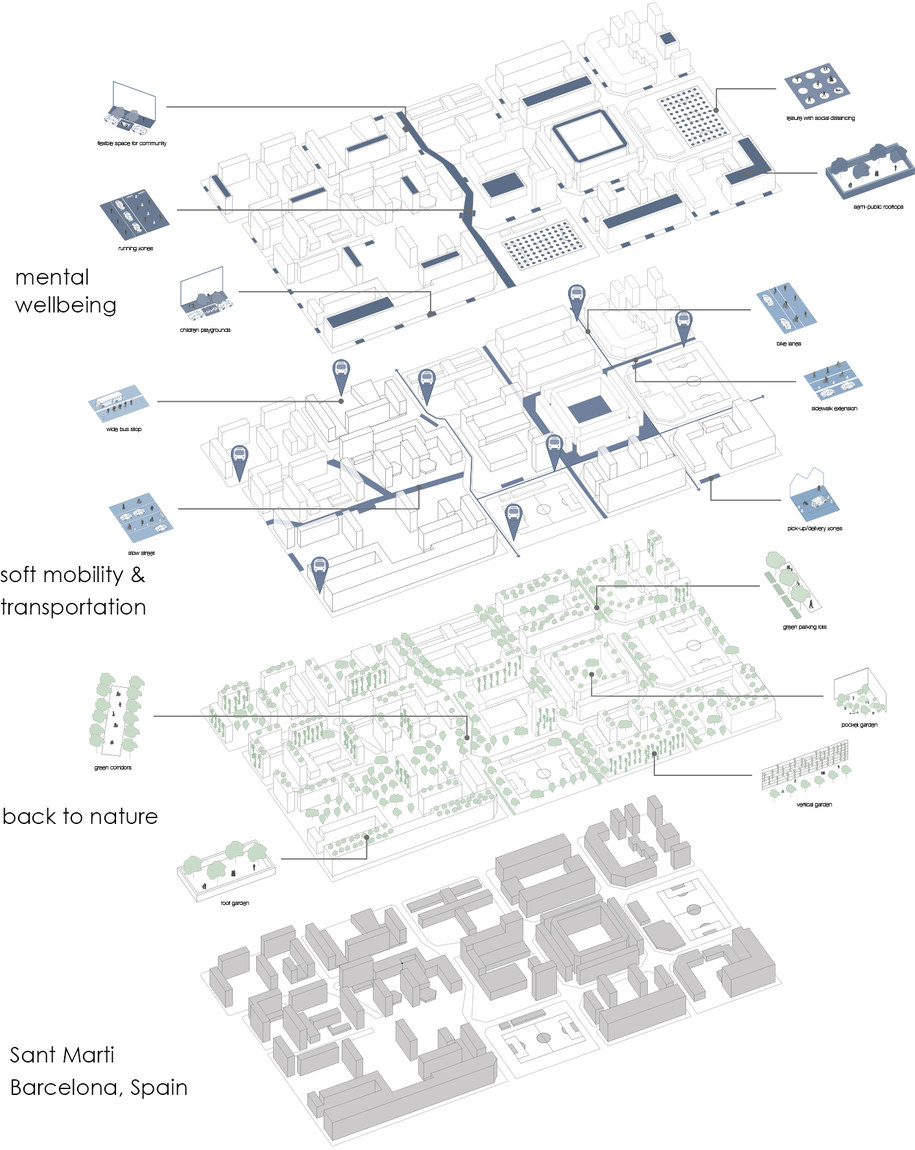
The given opportunity to reinvent the space was implemented in the district of Sant Martí in Barcelona where some of the proposed interventions were applied.
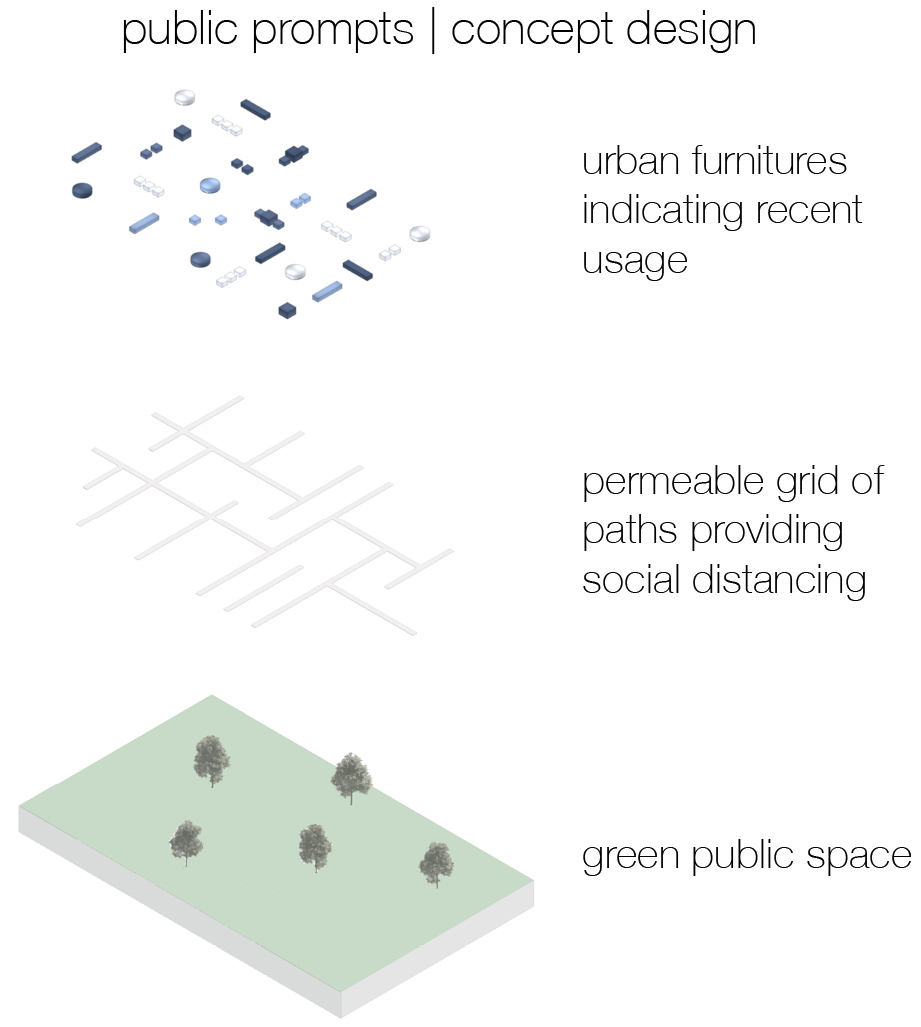
PUBLIC PROMPTS are the signs, indications embedded in public space that help the users to behave according to still changing guidelines. Among them, a proposed urban furniture warning recent usage with a color that activates when someone seats on it.

This design makes users conscious and aware of the danger that may face in public space and allows them to stay together in a healthy and safe way.
_________________________________________________________________________________________
Facts & Credits
Participants: Carlos Vega Betancor
Karolina Skowronek
Country: Spain
Poland
The project was shortlisted in top 50 out of 440 projects.
The impact of Pandemic Architecture competition on the international architectural community was astonishing, with the number of registrations to exceed 800, with the final proposals to exceed 400 and with participants from more than 60 different countries.
Results were officially announced on the 25th of September.
_________________________________________
Check out the open call and the jury here!
READ ALSO: Balcony Urbanism | Pandemic Top50